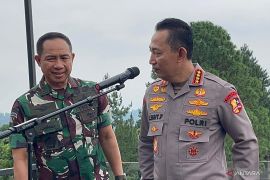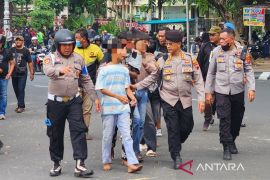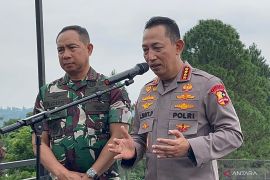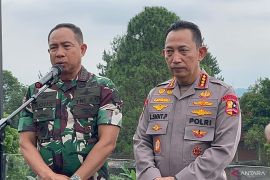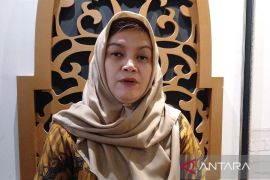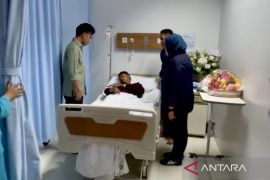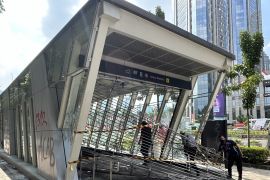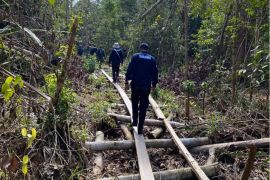"If terrorist suspects may be killed, use TNI forces. But they need only to be arrested and then tried. The means for it is the police. If police may kill terrorists they might as well become TNI," he said at a seminar on counter-terrorism for national unity and cohesiveness in the framework of national resilience held by the National Resilience Institute (Lemhannas) here on Wednesday.
He said Article 6 of the Law on Terrorism states that terrorists must be penalized, meaning they must be arrested and sentenced.
"The law is implemented by the police but in some cases suspects were killed," he said.
Soleman said counter-terrorism operations by TNI according to the Law on TNI only provide two options namely "kill or to be killed."
"TNI acts in the form of military operations in war or not war. In military operations the choice is only `kill or be killed.` If TNI acts terrorist suspects have to be killed," he said.
He said the issue of terrorist suspects had to be seen comprehensively with regard to determining whether the target is killing or arresting and legally processing them. The follow up actions may be carried out by TNI or the police, he said.
"The methods may be taken based upon the laws on TNI and the police," he said.
Lemhanas governor Budi Susilo Soepandji earlier said there was no need yet to mobilize TNI in the fight against terrorism.
"Right now what needs to be done is optimizing the National Counter-Terrorism Agency (BNPT) and the police," he said.
He said TNI would only be involved if terrorism had become massive making it impossible for the police and civilian agencies to deal with such as in a case of simultaneous terrorist attacks in several regions.
"In this case it is not impossible for the Lemhanas governor and the police to mere pray. We need weapons namely the TNI," he said adding that the involvement of TNI would be the last resort.
He said although it was up and down current conditions were still good and so there was no need to involve TNI.
"What is needed right now is dialog and so hard power is not needed," he said.
He expressed appreciation to BNPT eftorts so far but said that "BNPT must not only conduct enforcement but also de-radicalization because terrorism is like a tip of an iceberg."
He said they may ask for advice not only from TNI with regard to it but also from Lemhanas as the institute also has experts from various universities to study the problem.
BNPT Deputy for Enforcement and Capability Development Brigadier General Tito Karnavian meanwhile said that 70 to 75 percent of anti-terrorism operations so far were intelligence operations.
"Only around 20 percent of the operations was investigation and five percent repressions by police anti-terror unit Densus 88," he said.
He said there were two issues with regard to terrorms fight namely the process of uncovering and arrested suspects and proving their guilt in an open and fair court.
In Indonesia, he said, of 689 terrorit suspects that had been arrested and brought to court were convicted.
He said there had been a decline in quality but in temrs of quantity the number of terrorists rose with 103 arrested in 2010 from only 93 in 2003.
He said observers and law enforcers initially thought that terrorism in Indonesia had finished after hundreds of terrorists were arrested in 2005 but were shocked following the bombing at Hotel Ritx Carlton. in 2009.
"Terrorism in Indonesia has not finished. Even in 2010 a terroism training camp was discovered in Aceh and a suicide bombing occured in 2011. In terms of quality it drops but in quantity it increases," he said.
(T.S037/H-YH/HAJM/O001)
Editor: Priyambodo RH
Copyright © ANTARA 2011


